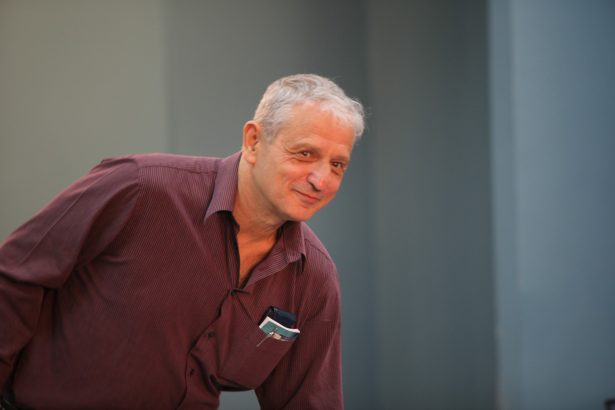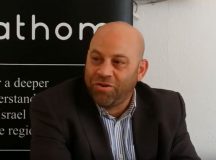Nahum Barnea is a veteran Israeli commentator for Yediot Ahronoth who has covered Israeli domestic and foreign affairs for decades. In this discussion with Fathom – done days before the parties of Benny Gantz and Yair Lapid merged – Barnea argues that the main issue of the elections is neither social issues nor national security challenges but rather whether Benjamin Netanyahu should continue to serve as Prime Minister. He also details how even though the Israeli-Palestinian conflict is not yet front and centre of the debate, the upcoming announcement of Trump’s peace plan will turn the topic into a major issue as coalition negotiations are taking place. Download a PDF version here.
Fathom: How is the 2019 election similar or dissimilar from other elections? What are the main issues of the election?
Nahum Barnea (NB): It’s only natural that each election campaign is different. The one interesting and unique feature in this election is that the main focus is not on policies – the economy, diplomacy, the international agenda, security etc – but first and foremost on one person, Prime Minister Benjamin Netanyahu and whether, after more than ten years in the position, a period longer than any other Prime Minister, he should continue. Netanyahu is not only the focus of the campaign among the opposition, but he is also running the Likud campaign as a personal campaign. This is particularly interesting as although Israelis vote for parties rather than individuals, the party is only marginal in the campaign.
Perhaps more important is the question of the Attorney General’s (AG) decision over whether to indict Netanyahu pending a hearing. These are going to become central issues in the campaign, especially in the weeks before election day, when it will be clear to the voters whether the AG is going to indict Netanyahu for bribery. He is due to announce his decision during the last week of February or the first week of March.
Fathom: When the police recommended charging the prime minister, Likud actually rose in the polls. How much influence on the elections will the decision to indict have?
NB: This could go either way. On the one hand, a lot of people who believe Netanyahu is a good, effective prime minister will reconsider voting for Likud because they feel that a corrupt prime minister – or one under indictment pending a hearing – is not the prime minister they want to have. In this scenario, the votes could either go to the right of Likud or to the left of it. Another option is that Netanyahu will turn the debate regarding the AG’s announcement into a campaign of victimisation – with him playing the role of the victim, in a similar way to US President Donald Trump’s campaign where he turned on the establishment.
The Israeli media have been very critical towards Netanyahu because of the legal accusations against him, but Netanyahu has the chance to become even stronger because there are those who believe that what has been done to him is unfair. Ultimately, we don’t really know yet, but the indictment and the investigations will be a major debate in the last two or three weeks of the campaign.
Fathom: You talked about the focus being on Netanyahu. To what extent do you think personality is now basically trumping policy?
NB: This is increasingly true in Israel and due to two reasons. First, I believe most Israeli voters believe that the state of the country is basically satisfactory. The economy isn’t booming, but it is much better than other countries. There is debate over social issues, but it is not a major issue in this election and people feel stable. Second, on the topics Israeli voters consider crucial – such as the security challenges vis-à-vis Iran, with Hamas in Gaza, Hezbollah in the north etc. – there is no substantive difference between the major parties on either side of the aisle. The right-wing government and the parties in the centre-left have mostly deferred on discussing these issues.
Fathom: Many people imagine the classic debate in Israel to be between right and left, which is primarily determined by one’s position on the Palestinian issue. One of the main slogans of Gantz’s party, the Israeli Resilience party is, ‘it’s no longer about right or left’. To what extent do you think that is an accurate description of where the Israeli public is?
NB: I tend to believe that these issues have not been relevant to this campaign so far. The question of the Israeli-Palestinian conflict is crucial to the future of Israel. But in recent years it became irrelevant because there was no progress and it seems there is little appetite on either side to move forward. At the same time, this issue can become a big one because of President Trump’s much awaited ‘Deal of the Century’. This will probably be published immediately after the Israeli elections. While parts of it have been revealed by the media in recent months, we don’t know for sure what will be in the final draft. Netanyahu will likely try and get the Palestinians to be the party who will refuse to discuss it so he can subsequently appear more moderate by not saying anything.
But there will be Israeli right-wing parties who will press Netanyahu for commitments to reject the plan even before the elections and to commit himself to policies which contradict the plan. This topic will therefore be an issue – especially on the right. None of the centre or left wing parties will react in negative terms to the Trump plan. But they do not currently have the tools to make their position on the plan a big campaign issue. So the Israeli-Palestinian conflict and the peace process is a big cloud hovering over our future, but I don’t see it as a big major relevant issue now.




































